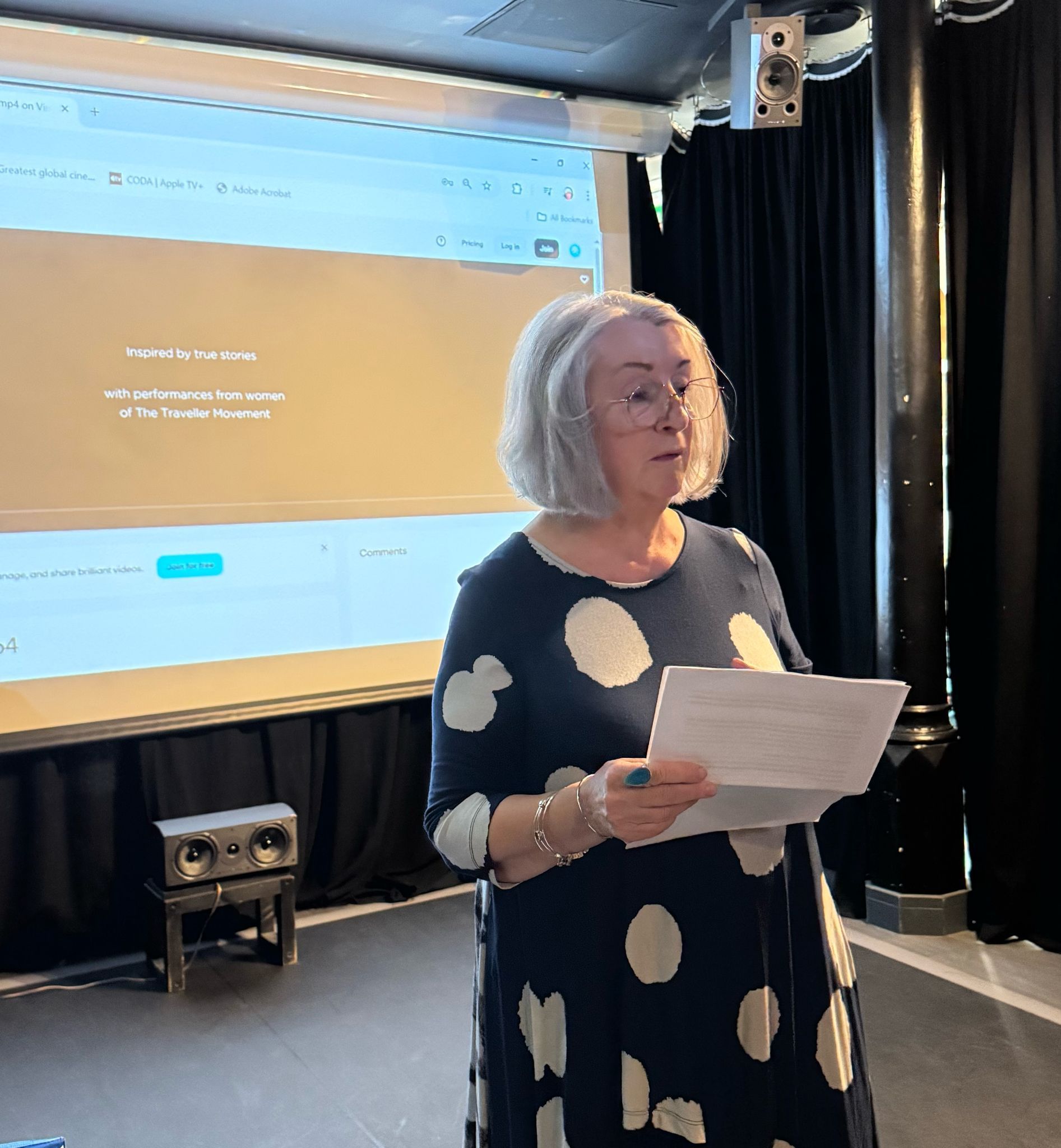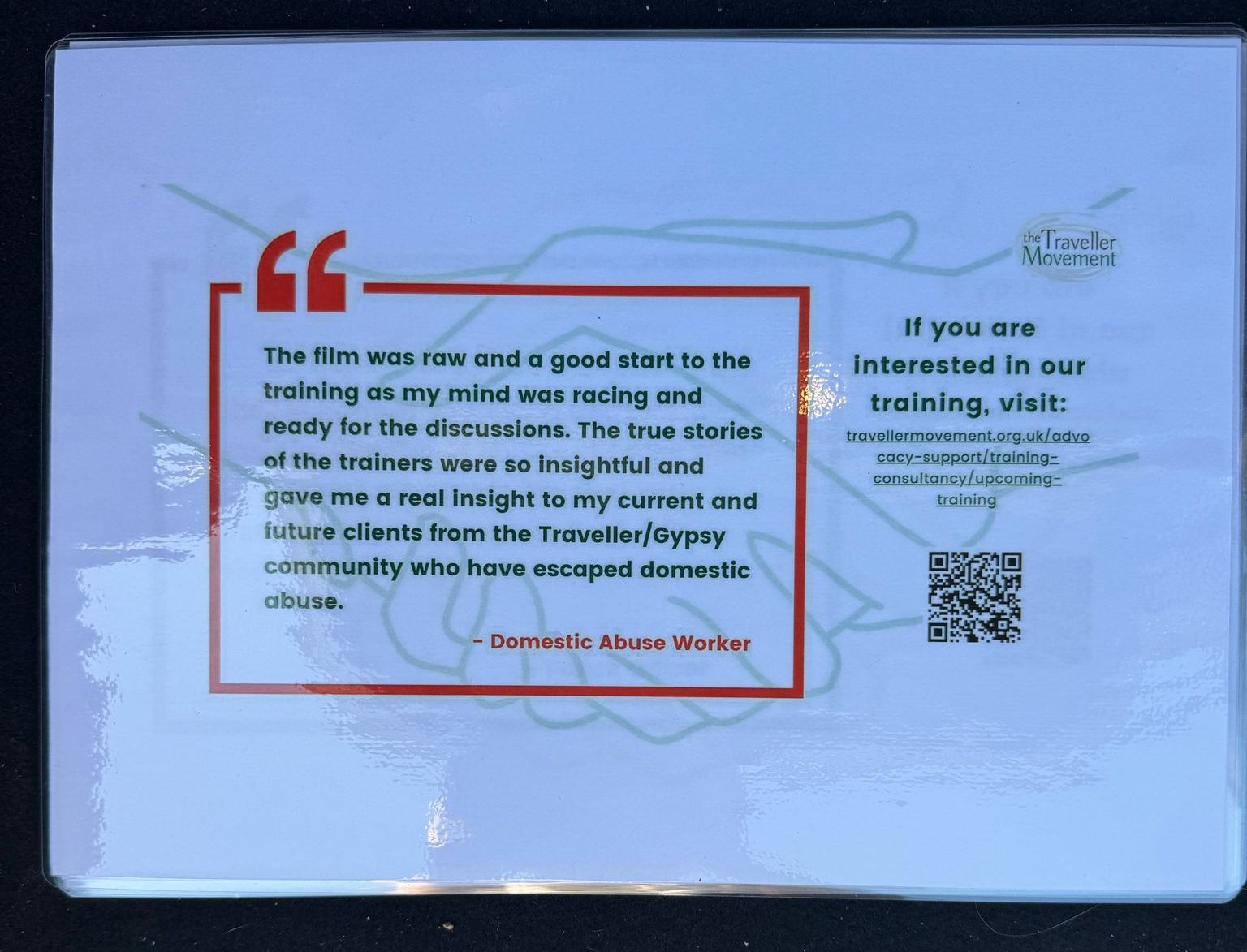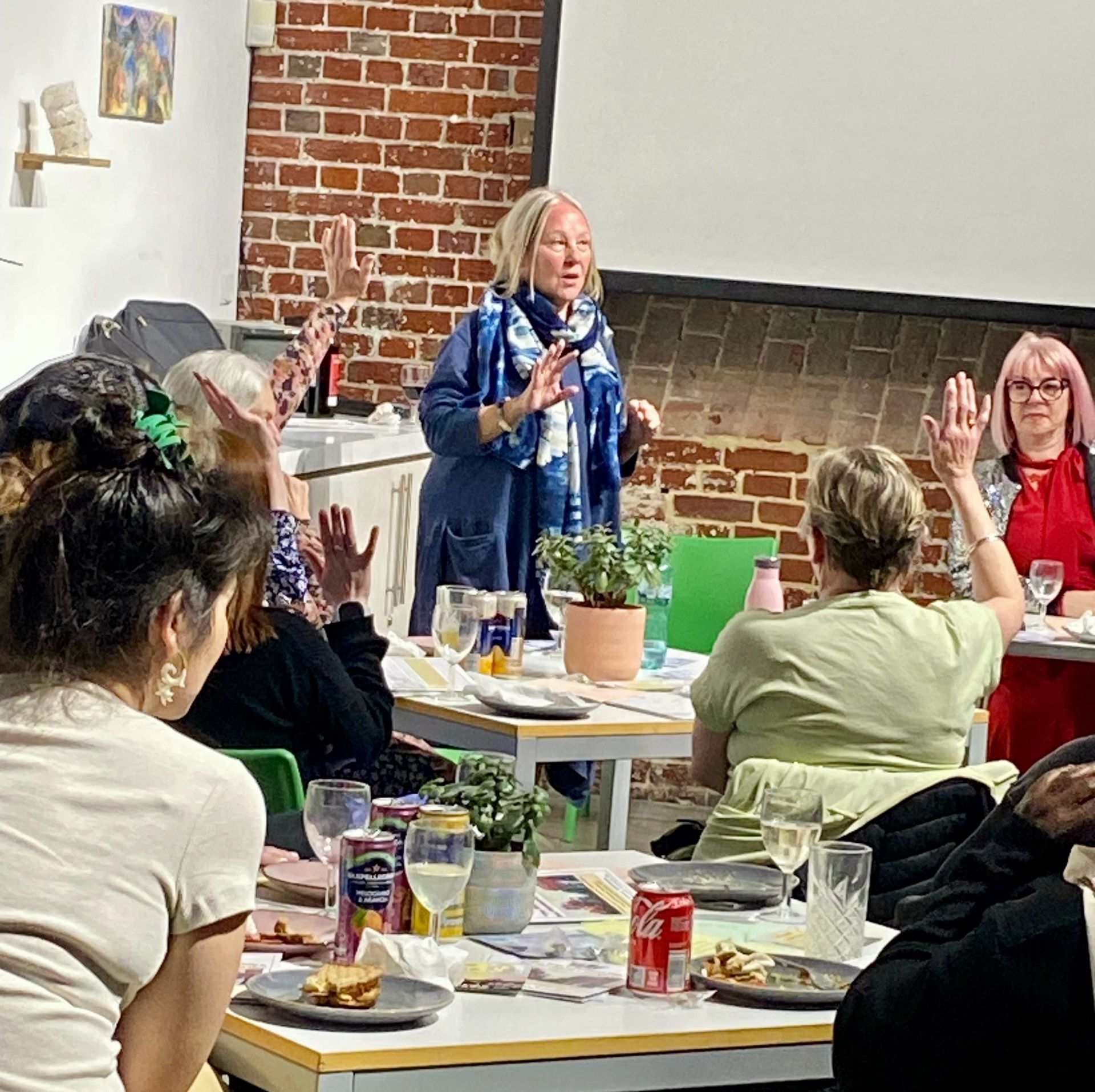Portsmouth NEU, Steve Sinnott Foundation and The Traveller Movement
Portsmouth Branch of NEU (National Education Union) held it’s AGM on Friday April 25th. Around the AGM several organisations and speakers were invited to take part.

The Traveller Movement, in collaboration with The Steve Sinnott Foundation, were invited to screen the film Never Going to Beat You (NGTBY) as part of the 2025 AGM of Portsmouth NEU. On Thursday evening the film was shown at the Southsea Cinema and Arts Centre.
The film was introduced by Jude Tisdall representing the Traveller Movement. Jude is also an ambassador for the Steve Sinnott Foundation. The film was shown to an invited audience of NEU members including teachers and educators. NGTBY is a film about domestic abuse, based on true stories of 18 Romany, Gypsy and Irish Traveller women. It is powerful and hard-hitting film, commissioned with the purpose of raising awareness. It is a masterful portrayal of how domestic abuse can destroy lives and effect families and community. The film is part of the Traveller Movement Education Programme and can be used to raise awareness among service providers and professionals or, as a discussion opener with Gypsy, Roma and Traveller communities, or indeed any community where such topics are seen as taboo. Domestic abuse and violence is of course not limited to any one community or any one sector of the population. This is a problem that cuts across all sections of society; it is not age related, class, culture of gender related. The showing was followed by a discussion.
For full details of all trainings available please visit www.travellermovement.org.uk

Among the invited speakers at the AGM on Friday evening, April 25th were Ann Beatty CEO of the Steve Sinnott Foundation and Shamella Dhana Chair of Trustees and Founder member of Portsmouth City of Sanctuary.
Portsmouth City of Sanctuary
PCoS is grassroots, award winning, humanitarian charity, primarily assisting Portsmouth’s migrant community with direct action. The PCoS volunteer team aims to compassionately uphold the dignity and independence of all individuals it supports, regardless of status, and strives to do so with respect and welcoming warmth for everyone.
Shamella spoke about the organisations work in helping local asylum seekers, refugees and migrants, sharing some of the enormous range of projects which include a Refugee Hub, Action Asylum, Welcome Box arrivals, Welcome Wheels. There is a female only space HAVEN which has a programme of activities and support to those who have suffered gender violence. And much, much more. Shamella is an inspirational speaker, passionate and knowledgeable.
For further information of the work of PCoS please go to www.portsmouth.cityofsanctuary.org

The Steve Sinnott Foundation
The Steve Sinnott Foundation is a small charity with an enormous reach. Their mission is to change lives through education by creating a worldwide community of educators and learners. striving for universal access to quality education and ongoing improvement of teaching and learning.
Ann Beatty, CEO of the charity spoke of some of the current projects supporting this vision to accessible education are
- Positive Periods: a project which started out in one country and has now been rolled through to The Gambia, Sierra Leone, Guinea Bissau, Uganda, Malawi, Senegal, Nepal, Haiti and Cuba. On reaching puberty girls can miss out on up to a quarter of school time by not having the materials to manage their periods
- Running workshops on gender-based violence. Creating safe spaces to talk, explore and understand.
- Mother Tongue Literacy Classes
Ann thanked the NEU Portsmouth for their continued support and spoke about Steve’s ambitions and dreams in relation to education for all. She also noted that the work of the Traveller Movement and Portsmouth City of Sanctuary had similar and overlapping purpose and hopes in relation to cultivating an awareness and creating change around gender-based violence in all its forms.
For further information please visit www.stevesinnottfoundation.org.uk
If you are in Southsea do pop in and meet Aysegul and Hannah, they host loads of community events and they made our evening a great success. www.southseacinema.co.uk




